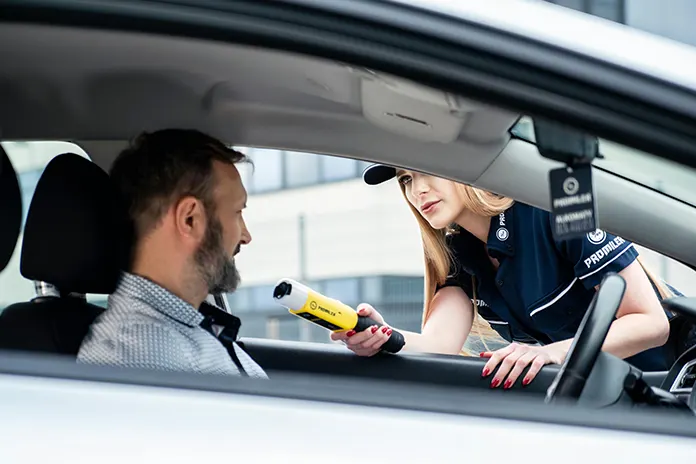Alcohol Testing and Firefighter Readiness Standards

In the heart of the night, when the world is wrapped in slumber, the piercing siren of a fire engine shatters the silence. Firefighters, the unsung heroes of our communities, rush into action, risking their lives to ensure our safety. Yet, their readiness is paramount, and this includes being free from any impairments that could hinder their performance. As such, alcohol testing has become an essential component in maintaining the readiness standards of these brave individuals.
Understanding the Importance of Readiness
When you think of firefighters, what comes to mind? Courage, resilience, and unwavering dedication. These are not just qualities but the very essence of a firefighter’s character. Imagine a scenario where these heroes, who rush into burning buildings to save lives, are impaired by substances. It’s a chilling thought, indeed. The design of a firefighter’s readiness program must be robust enough to ensure that every individual is at their optimal capacity, both physically and mentally.
The implementation of drug and alcohol testing in the firefighting profession is not just a precautionary measure; it’s a moral obligation to ensure that these heroes are fully equipped to handle the challenges they face. The stakes are high, and the repercussions of any impairment can be catastrophic. Thus, alcohol testing is a crucial aspect of ensuring that these individuals are prepared to perform their duties without any hindrance.
The Role of Alcohol Testing in Firefighter Readiness
Alcohol testing plays a pivotal role in maintaining the integrity of the firefighting profession. You might wonder how often these tests are conducted and what protocols are in place. Typically, random testing, as well as testing after incidents or reasonable suspicion, are part of the comprehensive approach to ensure that firefighters are adhering to readiness standards.
You need to consider the rigorous demands of the job. Firefighters must be alert and physically capable of handling extreme conditions. Alcohol, even in small amounts, can impair judgment, slow reaction times, and reduce coordination—qualities that are non-negotiable in emergency situations. By including alcohol testing as part of their readiness standards, fire departments can ensure that their teams are always at their best.
Anecdote on Design: Imagine a designer tasked with creating a suit that protects a firefighter from the intense heat of a blaze. Every stitch, every material choice, reflects a deep understanding of the risks involved. Similarly, the design of alcohol testing protocols must be precise and comprehensive, leaving no room for error. It’s about creating a safety net that catches any potential risks before they manifest in life-threatening situations.
Balancing Trust and Accountability
Trust is a fundamental component of any team, and in the firefighting profession, it is even more critical. You might ask, doesn’t alcohol testing undermine this trust? On the contrary, it reinforces it. Knowing that each team member is held to the same high standards ensures that everyone is accountable for their actions.
Anecdote on Character: Consider a firefighter named Jake, known for his unwavering dedication. One day, after a tough incident, Jake’s team noticed a slight change in his behavior. They approached him with concern, and through open dialogue and testing, they discovered he was struggling with stress and had turned to alcohol. Instead of punitive measures, the department offered support and rehabilitation. Jake’s character shone through as he embraced help, showing that true strength lies in recognizing when you need assistance.
Implementing Effective Alcohol Testing Protocols
The effectiveness of alcohol testing lies in its implementation. It’s not merely about conducting tests but about fostering a culture of safety and support. You need to ensure that protocols are clear, fair, and consistently applied. Education is crucial in this process. Firefighters must understand the importance of these tests and the potential impact of alcohol on their ability to perform their duties.
Anecdote on Forgive: There was a firefighter named Lisa, who once failed an alcohol test. The fire department chose to support rather than condemn her. They provided counseling and resources to help her overcome her struggles. Lisa’s story is one of redemption and forgiveness, highlighting the department’s commitment to its members’ well-being. It underscores the idea that mistakes can be stepping stones to growth, rather than stumbling blocks.
Ensuring a Safer Future
As we look to the future, the role of alcohol testing in maintaining firefighter readiness cannot be overstated. It is a vital component in ensuring that these brave individuals are always prepared to face the challenges of their profession. By fostering a culture of accountability, support, and continuous improvement, we can ensure that firefighters remain the steadfast guardians of our communities.
In conclusion, when you see a firefighter rushing into danger, know that their readiness is not a mere coincidence but a well-orchestrated effort involving rigorous standards, alcohol testing, and an unwavering commitment to their duty. Let us support these heroes by ensuring they have the resources and frameworks they need to perform their jobs safely and effectively.
Also Read: A Complete Guide On How To Log In As A Retailer At APSBCL Retailer Login Platform
